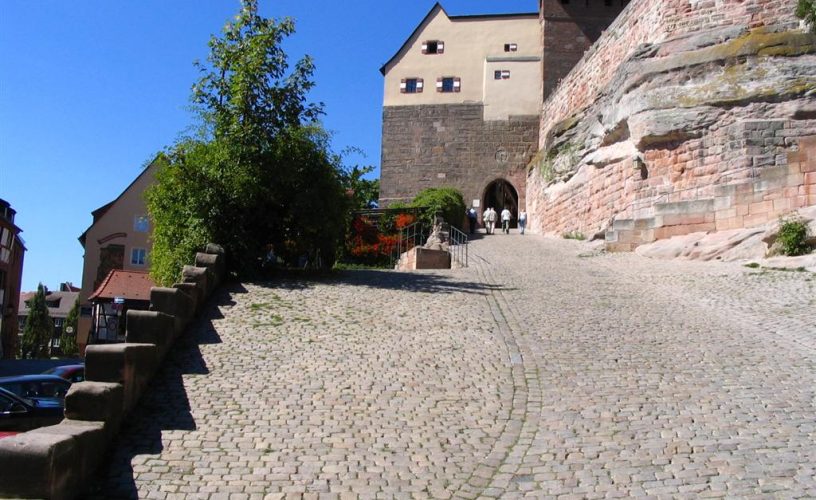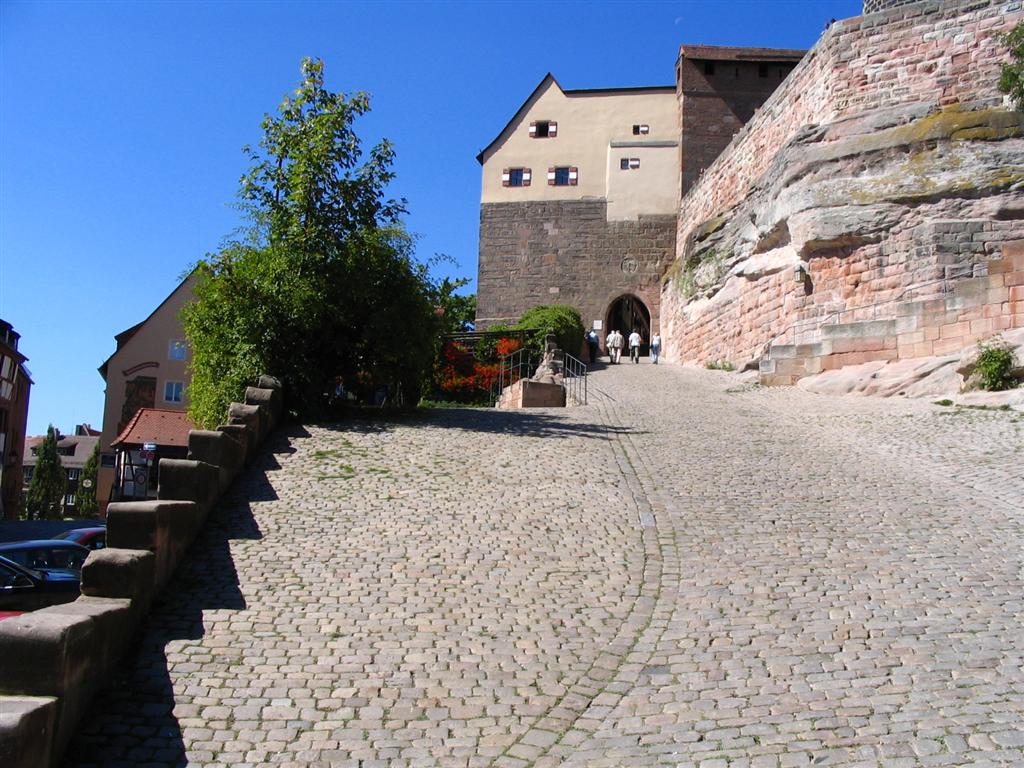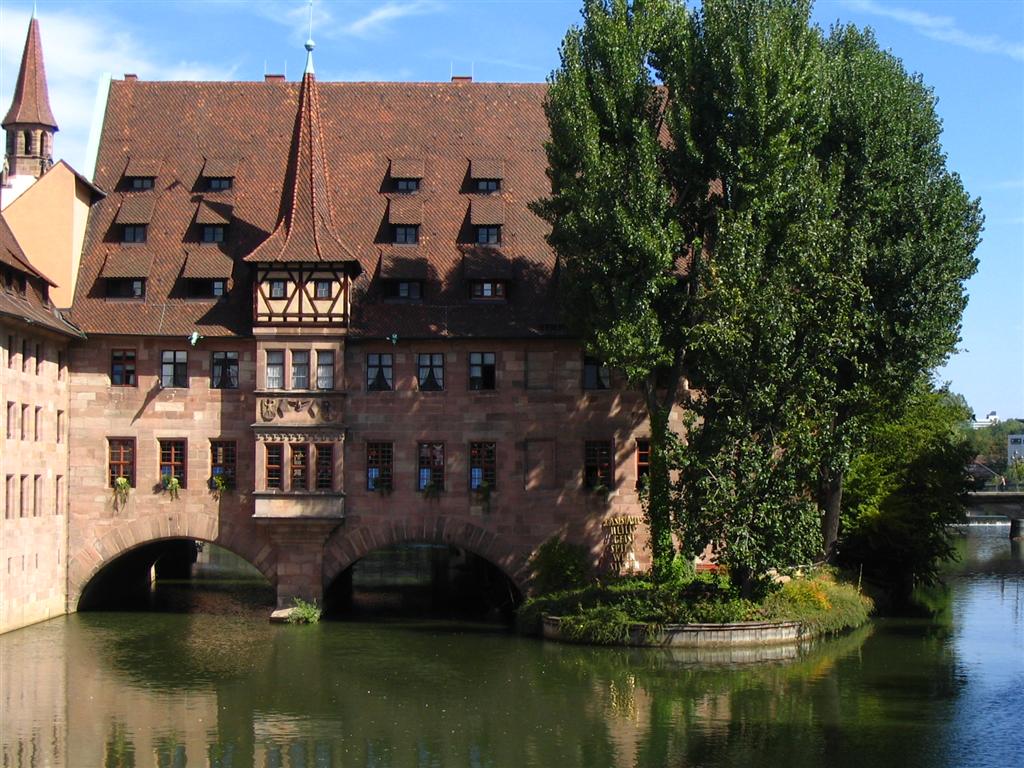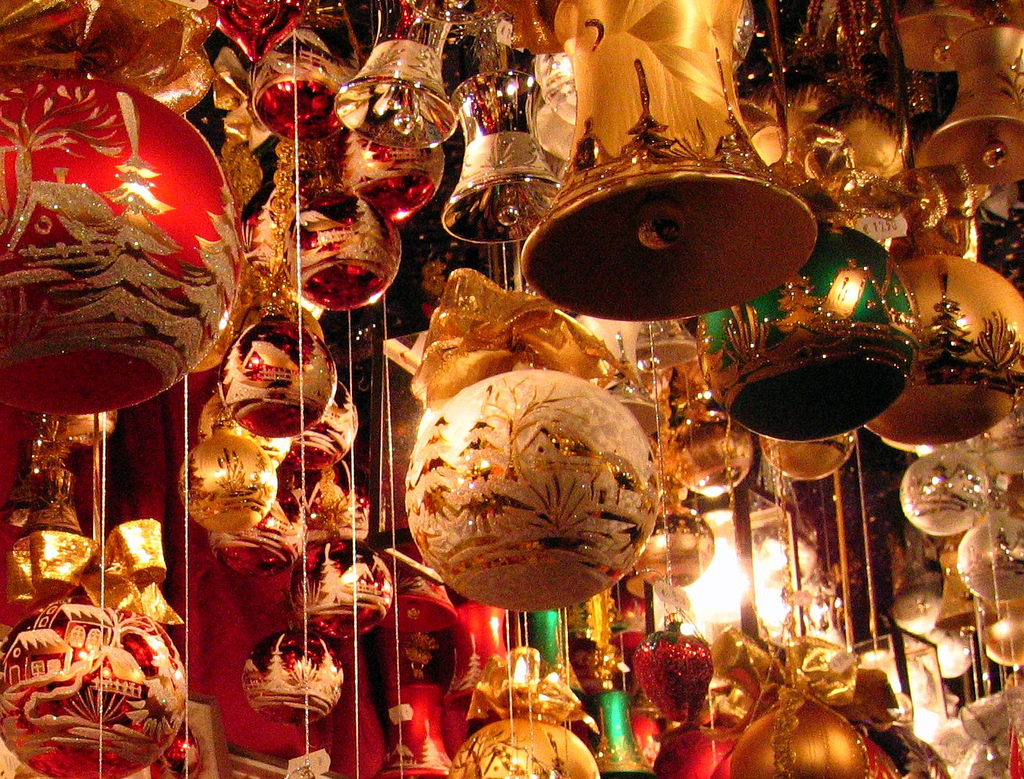Nuremberg Theatre Venues
Städtische Bühnen Nürnberg Opera House
Richard-Wagner-Platz 2
The opera house was built between 1901 and 1905, redesigned by the Nazis, and was fortunately only slightly damaged in 1945. The building contains the main theatre, the studio theatre and the opera house.
So many artists performed here, that it can not be mentioned in one set, but here, for the lovers of any cultural happenings in town, is a real treat.
This is one of Bavarian largest place for the finest arts, in the country where classical music is still appreciated.
This place has a permanent staff of 550 people. Most of them are Opera singers and settings workers, but among them, there are drama players, and of course, the ballet dancers. All of them are being led by Jens-Daniel Herzog, and they are divided into about 650 up to 700 performances.
More than one of them are being performed for the season, some even for a whole year. And every year, trough this Opera House goes about 300.000 people, and that number keeps rising.
The Opera House is made out of venues where ‘ The Opera House’ is the most beautiful, then there is the ‘Play House’ which includes smaller stages, for the smaller groups of people on the stage, but all of them are being regularly used during any season of the year.
needles to say, that the most beautiful if the Opera House, and even you are not the fan of the opera, you will surely enjoy the whole performance that goes within a place like this one.
Meister-singerhalle
Münchner Str. 21
Consists of a large and a small hall, for all different kinds of concerts. Among others, the Nuremberg Symphony Orchestra performs its concerts in the large hall. Meistersingerhalle is a municipal Center of Town of Nuremberg and with it’s cultural and conges obligations.
All that, and many more, you can see here, just be informed about what new is there, and does it fit your taste. For the decades, this has been the place of gathering many influential people of the town. Build in 1963. it became so popular, that in 2007. it received listing as a ‘Monuments of the Town’.
The name of the Meistersinger which was literally ‘ the Mastersingers’ became a prefix for the name of this venue, and even Wagner wrote an opera, in which he refers to this great place.
With the numbers of more than 800 performances per year and over 350.000 visitors in the same time-frame is a stunning number, and among 800 performances everyone in the world can find something to look forward to.
Altstadthof Bühne
Bergstr. 19
Small, intimate theatre in the heart of the old town.
This was, at first, a private little theatre, where the more common people used to come here, for a good atmosphere, great food, and lot of smiley faces to welcome you every time.
After some time, this place becomes famous and now it is a municipal stage, for all kind of performances.
A while ago, this place had its venue at Lessing Hall, before it got its permanent place. That was also a task for someone, and that someone was Karl Pschigode who was at the time an actor and after that, he became a theatre director. For choosing the name he was also the first in the row, but, as the fortune will be cruel, and instead of “Intimate Theater” the place got the name that it has today.
I-MAX Cinema in the CineCitta
A cinema in the CineCitta “cinema city” that shows films in 3D.
This is one of the largest cinemas in the whole of Europe, certainly the biggest in Germany. With almost 5.000 seating places and 22 separated cinemas, this will be the experience of a lifetime for those who love cinema as the seventh art.
For those who rather say: ‘I’ll wait for the movie’ this is the right place to see and feel the cinema art without reading any books, you can feel the comfort, and in new technology that is being used here, you will fill as a part of the movie that you are watching.
Except for the movies for all ages, you will find also children’s movies and plays, you can find 4 restaurants here with almost everything you can possibly desire. From popcorn and soda drink which are pretty common, you can not find other stuff like tapas menu, American dinner, cinema breakfast, fine Asian cuisine, Lounge bar, Trattoria with its Italian delicatessens, and many other tasty things you wouldn’t expect to see in the cinema.
The complex is on the river Pegnitz, so even walk to get to the cinema will be interesting enough. Until this day, the cinema already had its 2.5 million visitors, and the number is rising by the day. No matter which movie you are willing to see and feel the experience, you won’t regret it.
Gostner Hoftheatre
Austr. 70
The most prominent small theatre in Nuremberg has its own ensemble. Guest theatre groups also perform here. This is one of the private theatres, where you can enjoy in smaller group of people, not worrying about the loud noises from the rows below you, just relax and see for yourself how those who are not yet professionals, can make you love the theatre even more, if you loved them before, and at least feel like not waisting several hours on the art that will at least occupy your attention for the time spent there.
The Gostner Hoftheater is a private theatre founded in 1979 and operated by the association Gostner Hoftheater. It mainly shows pieces by young, and new authors, but also modern arrangements of classics and other theatre groups that show independent scene in Nuremberg. The Gostner was remade from the toy factory into a “theatre around the corner”. Only a decade later, the stage, originally conceived as a workshop theatre, was able to present its own productions with professional actors and directors. In the meantime, it has become established as the second important theatre in Nuremberg’s culture alongside the Staatstheater Nürnberg.
The theatre is located on the Gostenhof, near to the cafe bar ‘Loft’ with small green outside scene for performing.
There is also a theatre for the children, so you can relax with the whole family, educating your kids that the theatre is one of the most important arts, which slowly dies, with TV exposure, so that is also a reason to see one of the many shows that are being presented in this small but influential places.
Tassilo-Theatre
Sielstr. 5
A variety of theatre, where both cabaret and comedies in the Franconian dialect are performed. In the form of Cabaret, it was popular from 1982 to 2013, and it was a private Cabaret owned by Gerd Fischer.
The place could seat approximately about 250 guests.
Since they didn’t get the permission to make it on the courtyard, they made a basement that was fit for a place like this.
Because of the form of Cabaret, it was not that popular, among all the townspeople, but some things are facts, like that one of the most famous plays that Fisher wrote himself, and named it “Operetta sich Kann Kann” was performed 1.500 times, and it was always filled with people.
Even though some people don’t like this kind of theatre, with its vulgar language and scenes that are not for everyone’s eyes, bit by bit it lost most of its audience.
The critics from the evening newspapers almost ruined the reputation of this place, and even if it was full for 2 decades, in the ’80 and ’90., time passed by, and the theatre was closed in 2013.
These days, you can rent the place in front of the theatre, which can accommodate about 50-60 people, for not that big cost, and the stage which can seat up to 90 people safely.
Franken-stadium
Messezentmm
The Franken Stadium is the home ground of the 1st FC Nuremberg football club and is considered to be one of the most attractive football stadiums in Germany. It was opened in 1928 and since then it changed its name several times. Since 1966 this is the official stadium for Bundesliga and in 1974 this stadium was used in the Olympic Games 6 times for the matches.
Its first name was Städtisches Stadion or the Municipal stadium after war everything was victorious, and the name for the stadium in 1945 was changed into Victory Stadium. After that, in 1961 it was called by its first name or the Municipal Stadium, and in 1991 it got the name Frankenstadion Stadium.
March of 2006 brought the new name, and it was called easyCredit-Stadion, and the name stayed for a full of 5 years. The demonstration for the renaming of the stadium was held, and many wanted for the stadium to have a name of one of it’s most famous players Max Morlock.
After a big sponsorship, the station gets its new name again, this time, calling it by its sponsors, Grundig Stadion.
After that, there were only two changes left, in 2016 it was back to Stadion Nürnberg, and in 2017 it finally got its name, which stands even today, and its called Max-Morlock-Stadion.
So, if planning to see the football game, don’t worry much about the name of the stadium, just join the group, and enjoy the game. Facts about its name are less important.
Tafelhatle
Äußere Sulzbacher Str. 60
This theatre hosts guest performances and shows by small theatre groups.
Built originally in 1909, it was then a factory for producing the screws. In 1987 building was reconstructed, and now it is the place for the young artist, that are still trying to climb their way to glory, a place where people gather and collect ideas for new plays and new forms of art, there is also an auditorium where they can rehearse and be guided by the better-known artists.
There is also a theatre café, and a rehearsal stage, which creates new hope for new performers.
Also, as part of the building is the ‘Industrial Museum’, where you can relax, and think through everything that young people tried on stage.
Today, the venue of this place is the dance room, with wooden floors, theatre room for the newcomers, and all that in the safety of their cultural centre, where everyone is welcome.
Burgtheater
Füll 13
The Burg Theatre is a variety theatre. It hosts the famous cabaret festival in autumn. Besides, it has old forms of art besides cabaret, and there are comics, with their performances, and minor arts, but still not forgotten, like making jewellery, blowing glass and making small figurines, miniature sculptures, and coins from the old days…all of that relived in the hands of people who did it a lot of time, and in this place, people can learn how to make them, or sometimes repair some of the old pieces.
What is being done here didn’t pass without notice, that is why in 1987 they got the scholarship, and in 2009. they received the ‘Nuremberg City Prize’.
The theatre changed the place once before, but now it’s settled in Füll No.13., since May of 1984.
A place to see the young people in action, performing and bettering themselves each day, so that one day, they can have their parts in Shakespeare on a bigger scene.




